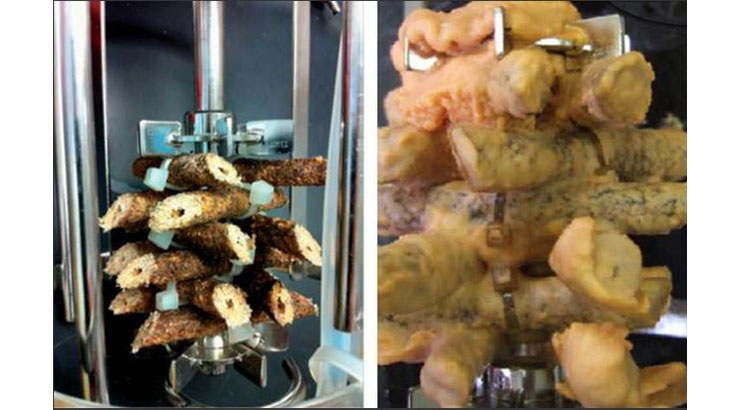Cost-Effective Strategy for Vitamin K Production in Biofilm Reactors
ID# 2018-4834
Technology Summary
This technology allows for the cost-effective production of the most potent form of vitamin K, menaquinone-7 (MK-7), under agitated liquid fermentation in a biofilm reactor. Currently, industrial production of MK-7 relies on static fermentation strategies that are costly and difficult to scale up. This biofilm reactor integrates specially designed plastic composite supports to which the MK-7-producing microbes adhere and on which they build biofilms. These supports are also porous, which allows for ingrowth of the microbes so that they are protected from the aeration and agitation required for fermentation. Using a fed-batch approach with a glucose-based medium, end-product concentrations of 28.7 mg/L of MK-7 have been achieved, making this a viable replacement for static fermentation strategies. The figure above shows the supports before (left) and after (right) fermentation.
Application & Market Utility
Recent studies have demonstrated that large doses of vitamin K, especially the MK-7 form, are associated with many health benefits including a reduced risk of cardiovascular disease, stroke, osteoporosis, and even cancer. Unfortunately, industrial production of MK-7 is currently limited due to the high costs and lack of scalability of static fermentation. This technology allows for larger quantities of MK-7 to be produced at a lower cost, thereby reducing the prices of supplements containing vitamin K.
Next Steps
Seeking licensing opportunities.

